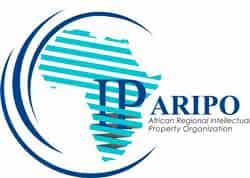Vias de proteção
Formas de proteger a sua invenção
As Patentes protegem as suas invenções. Após de um pedido bem sucedido, ser-lhe-á atribuído um monopólio para a explorar a sua invenção durante um determinado período de tempo.
As Patentes Nacionais são a forma mais eficiente de defender a sua invenção se apenas a quiser proteger num só país. Se isto não for suficiente para cumprir os seus requisitos, poderá optar pelos seguintes acordos internacionais:

ARIPO
Permite que um único depósito de patente seja eficaz em todos os estados-membros designados

PCT (Tratado de Cooperação em matéria de Patentes)
O sistema da PCT simplifica a internacionalização de patentes, que por sua vez facilita o depósito a nivel nacional.
Informação Adicional
Discuta a sua estratégia de Proteção de Propriedade Intelectual connosco
Se necessita de proteger a sua Propriedade Intelectual no estrangeiro, confie na nossa rede de escritórios e parceiros para assegurar um serviço de qualidade em qualquer ponto do globo.
Se tiver questões adicionais, teremos todo o gosto em agendar uma teleconferência para esclarecer as suas dúvidas.
Agendar teleconferênciaGana
Detalhes e Períodos
Reivindicação de prioridade
Disponível
Exame Substantivo
Disponível
Órgão responsável por pedidos de caducidade
Tribunal
Período estimado até concessão
3 anos
Requisitos de uso e caducidade
4 anos
Requisitos do Registo Nacional
Requisitos do Pedido de Registo
- Procuração com assinatura simples.
- Dados do requerente.
- Cópia do documento de prioridade (se aplicável).
- Título da patente, resumo, descrição, reivindicações e desenhos.
- Contrato de cessão.
- Cópia certificada do documento de prioridade, com tradução inglesa.
Requisitos de Renovação
- Procuração com assinatura simples.
Requisitos de Transmissão
- Procuração com assinatura simples.
- Contrato de Cessão, simplesmente assinado, com tradução inglesa verificada.
- Documento de transmissão, original ou certificado (se aplicável).
Requisitos de Mudança de Nome
- Procuração com assinatura simples.
- Certificado de mudança de nome, com tradução inglesa.
Requisitos de Mudança de Morada
- Procuração com assinatura simples.
- Certificado de mudança de morada, com tradução inglesa.
Requisitos de Licenciamento
- Contrato de licença original simplesmente assinado.
- Procuração do licenciante, com assinatura simples.
- Contrato de Cessão, certificado ou original, com tradução certificada inglesa.
Notas: Original or certified copy of the Deed of Assignment
Requisitos de PCT
Requisitos do Pedido de Registo
- Procuração com assinatura simples.
- Dados do requerente.
- Cópia do documento de prioridade (se aplicável).
- Título da patente, resumo, descrição, reivindicações e desenhos.
- Contrato de cessão.
Requisitos de Renovação
- Procuração com assinatura simples.
Requisitos de Transmissão
- Procuração com assinatura simples.
- Contrato de cessão.
Requisitos de Mudança de Nome
- Procuração com assinatura simples.
- Certificado de mudança de nome.
Requisitos de Mudança de Morada
- Procuração com assinatura simples.
- Certificado de mudança de morada, notarizado.
Requisitos de Licenciamento
- Contrato de licença original simplesmente assinado.
- Procuração com assinatura simples do licenciante e legalizada do licenciado.
Últimas noticias


